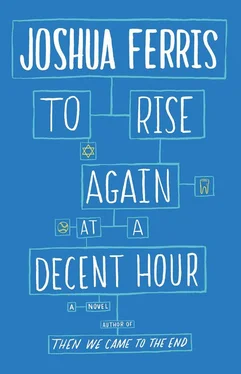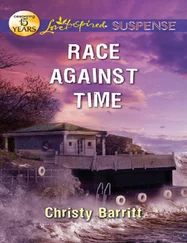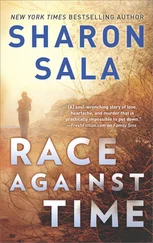I left Brookstone and went to the Pottery Barn. When I was a kid and everything inside our house was familiar, cheap, and ruined, walking into the Pottery Barn was like entering heaven. If they really wanted people to enjoy church, I thought back then, they should make everything in church look and smell like the Pottery Barn. My dream was to surround myself one day with everything in the store, with the wicker baskets and scented candles, the brushed-silver picture frames. But that was a long time ago. I had already gone through a period of buying everything there was to buy at the Pottery Barn and decorating my apartment like a Pottery Barn outlet, and then getting rid of it all during a massive upgrade. Now everything at the Pottery Barn looked ersatz and mass-produced. To buy any of it now would be to regress in aspiration and selfhood. I didn’t want to buy anything at the Pottery Barn so much as I wanted to recapture the feeling of wanting to buy everything from the Pottery Barn.
Something similar happened at the music store. I should try to find some new music, I thought, because there was a time when new music could lift me out of a funk like nothing else. But I wasn’t past the B s when I saw the only thing I really cared to buy. It was the Beatles’ Rubber Soul , which had been released in 1965. I already owned Rubber Soul. I had owned Rubber Soul on vinyl, then on cassette, and now on CD, and of course on my iPod, iPod mini, and iPhone. If I wanted to, I could have pulled out my iPhone and played Rubber Soul from start to finish right there, on speaker, for the sake of the whole store. But that wasn’t what I wanted. I wanted to buy Rubber Soul for the first time all over again. I wanted to return the needle from the run-out groove to the opening chords of “Drive My Car” and make everything new again. That wasn’t going to happen. But, I thought, I could buy it for somebody else. I could buy somebody else the new experience of listening to Rubber Soul for the first time. So I took the CD up to the register and paid for it and, walking out, felt renewed and excited. But the first kid I offered it to, a rotund teenager in a wheelchair looking longingly into a GameStop window, declined on the principle that he would rather have cash. A couple of other kids didn’t have CD players. I ended up leaving Rubber Soul on a bench beside a decommissioned ashtray where someone had discarded an unhealthy gob of human hair.
I wandered, as everyone in the mall sooner or later does, into the Best Friends Pet Store. Many best friends — impossibly small beagles and corgis and German shepherds — were locked away for display in white cages where they spent their days dozing with depression, stirring only long enough to ponder the psychic hurdles of licking their paws. Could there be anything better to lift your spirits than a new puppy? To scatter the clouds of your cynicism with its innocent delights in the simplest pleasures? That’s what I’d come to the mall to buy, I realized at once: a dog. I’ll liberate one of these cute bastards from cellblock 9 here and never be lonesome again.
But then I remembered a time, preparatory to having children, when Connie and I decided to buy a dog, and after we took it home, I couldn’t stop thinking of how short a dog’s life expectancy is. It wasn’t right to talk about one day having to watch our new puppy die with Connie down on the floor playing with him and laughing, but I couldn’t help it. I wanted to revel in the new puppy while it was still a puppy, because puppies become dogs all too quickly. And that was exactly my point: he’d be a dog in no time, and while he would appear to the human eye to remain unchanged for years, every day he’d be getting older, slowly but inexorably approaching death. When he died Connie and I would be bereft, which was, aside from being dead ourselves, the worst of all human things to be. Why ask for it? What had we done, impulsively purchasing this puppy without giving due consideration to its demise? I told Connie I thought we should return it. I couldn’t even get down on my hands and knees. I was up on the sofa crying, imploring her to take the puppy back. I could no longer so much as call it a puppy, and certainly not Beanie — no way could I call it Beanie. I just called it “the dog.” Connie got up on the sofa with me. She tried her best to understand. Inevitably she thought it had to do with my dad. But Beanie Plotz — O’Rourke and Conrad O’Rourke were apples and oranges. It wasn’t very likely that Beanie was going to put a bullet in his head because another round of electroconvulsive therapy had failed to take. Beanie just wanted to delight in the simple things. Do you know how embittering it is to watch something delight in the simple things while you’re consumed by the subject of death? Connie ended up keeping Beanie at her place. I’d stroke its fur occasionally when I was over, but that was about it. I left the Best Friends Pet Store empty-handed.
By then, the other people at the mall had started to wear me down. Not just the handicapped but the sickly, the stunted, and the debt-soaked diabetics. At first, I tried to convince myself that they weren’t representative. I was at the ass-end of a cross-section, and soon sprites of health and beauty would come floating by, bare breasted, their outspread arms wrapped in banners of silk. But those who kept passing me were identical in every way: terribly misshapen people, whale fat or rat thin, trailed by homely broods while screaming at deaf elders in open psychological warfare. My countrymen. I took refuge in a single, healthy-looking woman on her way to pick out a high-end handbag or maybe a pair of shoes. She moved with purpose, free of the discord of the poor and the lost, and was gone in the blink of an eye. I gave up and went to dinner at a T.G.I. Friday’s.
The waiter who came over to take my order was decked out from top to bottom in branded swag. Heavily mocked across America, swag was a comfort to me, because I had never forgotten how special it was to eat at a T.G.I. Friday’s when I was a kid. The swag brought back the memory of my mom and dad and the rigor with which we stuck to the least expensive items on the menu. Now that I had money, I always ordered more than one appetizer, the most expensive steak, something for dessert, and a Day-Glo cocktail or two. I wasn’t hungry. I was never hungry anymore. But it never got old. The Pottery Barn and Rubber Soul had gotten old, but my ability to order more than the chicken fingers with honey mustard from T.G.I. Friday’s would always provide me with a sense of accomplishment.
As I ate, I wondered if what applied to the Pottery Barn and to Rubber Soul might also apply to people. It applied, I had to admit, to Sam and the Santacroces, who had been everything to me at one time and now were nothing. Would it also apply to Connie and the Plotzes? I didn’t like to think of Connie as pure utility now all used up, and most days I was able to frame our split as so much more than that. But that day at the mall, surrounded by the melancholy redundancy of everything on offer, I wondered if it was really Connie I longed for when I longed for Connie or only the novelty of being in love again, of being estranged from my self and enchanted by her family, by the Plotzes and by Judaism — which was lost to me now, if it was ever mine.
On my way home, I stopped for beer at a package store. Whenever I stopped at a package store, I always looked for Narragansett, the beer my father drank while watching the Red Sox. It was during my cursory search for Narragansett, along a dusty aisle of niche beers, that I came across a warm six-pack of Ulm’s, a lager brewed in Ulm, Germany, and distributed out of Hoboken. It’s no hoax, I thought.
Читать дальше












